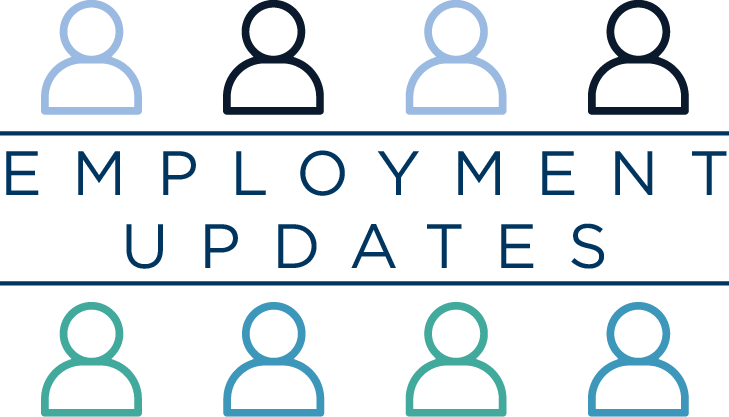
You’ve Been Warned – What You Need to Know about New Jersey’s Expanded WARN Act
Introduction
The most recent amendments to New Jersey’s WARN Act have heightened requirements during layoffs, including loosening the criteria for determining which employers are subject to the Act, mandatory severance and longer notice periods. These amendments contain sweeping changes designed to make a greater number of employers — and employers’ locations — subject to the NJ WARN Act.
Originally passed in 2007, the NJ WARN Act is New Jersey’s analogue to the federal Worker Adjustment and Retraining Notification (WARN) Act, 29 U.S.C. § 2100 et seq. Like its federal counterpart, the NJ WARN Act requires employers that meet certain criteria to give employees notice in advance of mass layoffs or similar actions that would result in a substantial reduction in force.
WARN Act Changes
On January 10, 2023, Governor Murphy signed legislation significantly amending the NJ WARN Act, which became effective April 10, 2023. The most important changes are as follows.
Far More Employers Are Covered
When counting employees to determine NJ Warn Act coverage, the amendments remove the previous distinction between part-time and full-time employees. Now, employers with 100 or more employees — regardless of full-time or part-time status — are subject to the Act.
Further, when counting employees to determine if notice is required, both part-time and full-time employees must be counted. NJ WARN previously did not count or consider part-time employees or employees employed for less than six months.
Multiple Statewide Locations Are Treated as One Entity
The term “establishment” used to mean a single, contiguous place of employment. A covered “establishment” now includes all facilities located in the state, instead of a single site of employment. This means that layoffs at all of an employer’s facilities or locations across New Jersey will be aggregated for evaluating whether notice is required.
The Advance Notice Period Expanded from 60 to 90 Days
Previously, the NJ WARN Act required employers to provide 60 days’ advance notice for mass layoffs or transfer/termination of operations (consistent with the notice period under the federal WARN Act). Now, 90 days’ advance notice is required.
Much Lower Threshold for Triggering the NJ WARN Act
Previously, a “mass layoff” occurred when there was an employment loss for 500 or more employees, or 50 or more employees representing one-third or more of the workforce at a single establishment, counting only full-time employees.
Under the new law, a “mass layoff” that triggers NJ WARN notice requirements is a reduction in force that impacts 50 or more employees across the entire state, regardless of whether they are part-time or full-time, the facility in which they work, or the percentage of the workforce they comprise.
Thus, for example, a company with 5 separate locations, with a loss of 10 employees at each location, arguably may be subject to the notice-and-severance-pay requirements under the new definition.
Moreover, any employee suffering a termination of employment is counted toward whether a mass layoff, transfer, or termination of operations has occurred, including non-resident employees reporting into New Jersey (i.e., entirely remote or field employees). This makes it more likely that an employment action is a covered event.
Multiple rounds of layoffs within a 90-day period will be aggregated for this purpose unless the employer can demonstrate a separate cause for each round of layoffs.
Mandatory Severance Pay for All Affected Employees
Arguably, the most significant amendment is the requirement of mandatory severance pay. The previous NJ WARN required employers to pay severance of 1 week of pay for each year of service to each employee who did not receive the required 60 days’ notice prior to a covered triggering event.
Under the new law, all affected employees — regardless of whether they received advance notice — are automatically entitled to severance at the rate of 1 week of pay per full year of employment regardless of their tenure and regardless of their weekly pay.
If an employer fails to provide 90 days’ notice, each impacted employee is entitled to an additional 4 weeks of pay. If an employee is covered by a collective bargaining agreement or employer severance plan, the employee is entitled to the greater of the amount outlined in the amendments or the amount required by the CBA or severance plan.
Expanded Employer Liability
The definition of “employer” has been expanded to include “any individual, partnership, association, corporation acting directly or indirectly in the interest of an employer in relation to an employee.” It includes any person who owns and operates the nominal employer, owns a corporate subsidiary that owns and operates the nominal employer, or makes the decision responsible for the employment action that gives rise to a mass layoff subject to notification.
This expanded definition suggests that a corporate manager with no ownership interest but who was directed to reduce headcount may be held personally liable for failing to comply with the law’s notice and severance obligations.
Takeaways
These amendments represent some of the most aggressive requirements for downsizing anywhere in the country. Employers with operations in New Jersey need to be more mindful of the legal implications associated with any employment decision that results in the termination of at least 50 employees anywhere in the state.
Employers should review their current New Jersey operations, as well as whether out-of-state employees are reporting to a New Jersey location and consult with labor and employment counsel before carrying out any reduction in force that might affect at least 50 employees.
For more information or questions about this article, please contact Jacqueline Voronov at or any member of Hall Booth Smith’s Labor & Employment service area.
Disclaimer
This material is provided for informational purposes only. It is not intended to constitute legal advice nor does it create a client-lawyer relationship between Hall Booth Smith, P.C. and any recipient. Recipients should consult with counsel before taking any actions based on the information contained within this material. This material may be considered attorney advertising in some jurisdictions. Prior results do not guarantee a similar outcome.
Blog Overview
About the Author
Jacqueline Voronov
T: 201.221.7014
E: jvoronov@hallboothsmith.com
Jacqueline Voronov’s litigation experience includes the defense of employers in single and multi-plaintiff actions on claims of wrongful discharge, sexual harassment, race, national origin, gender, disability, pregnancy and age discrimination, breach of restrictive covenants, family medical leave, failure to accommodate, retaliation, wage/hour laws, and related tort claims.




Leave a comment
You must be logged in to post a comment.